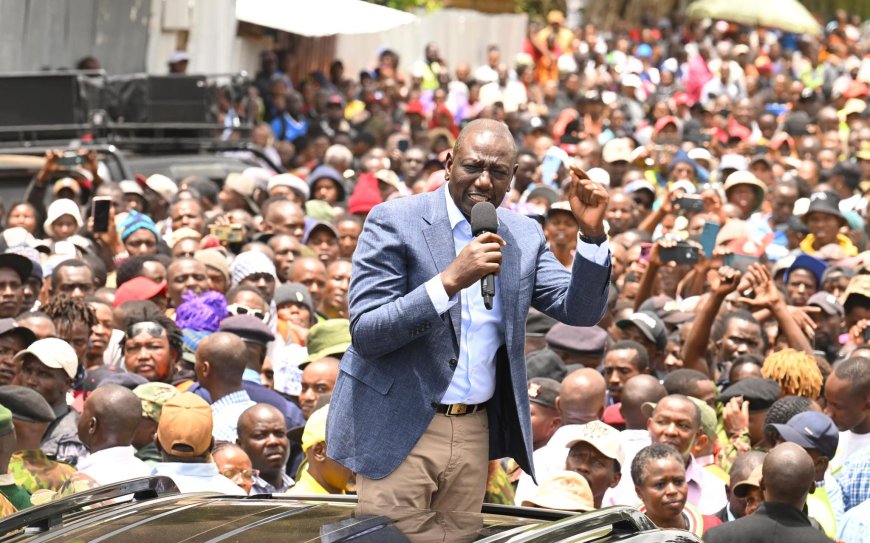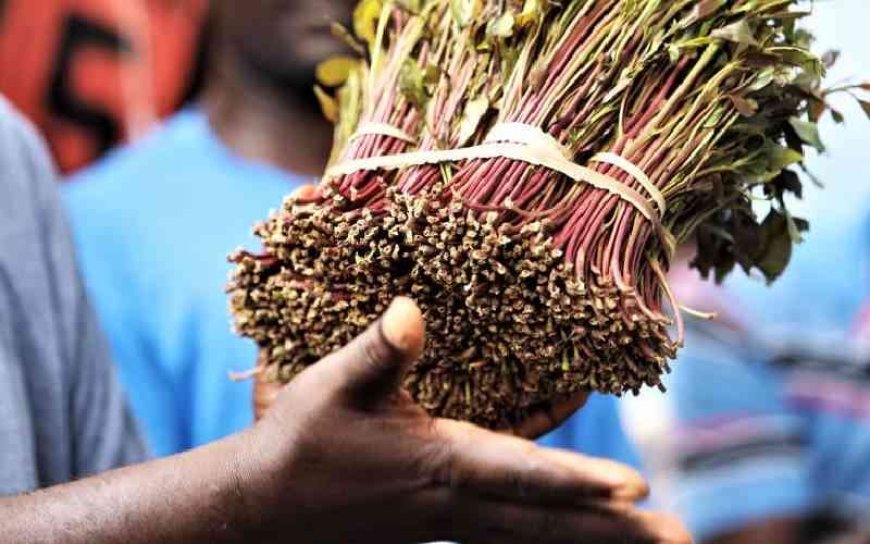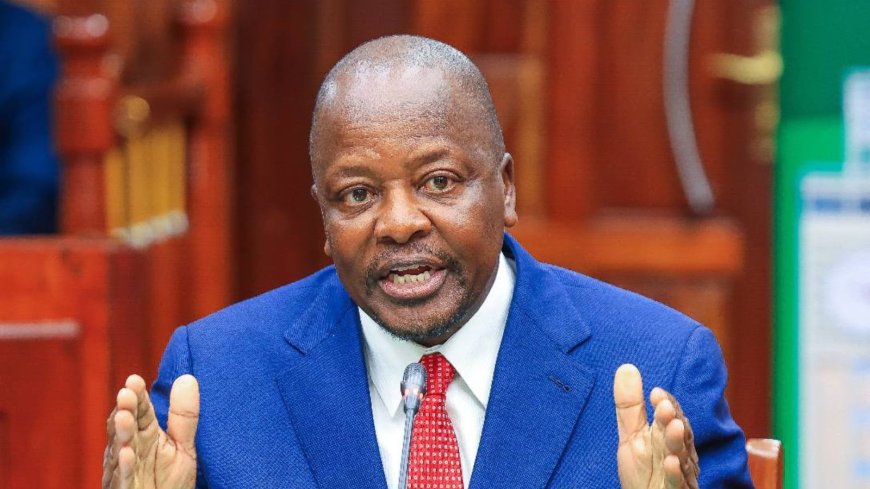Ruto Defends Govt's Decision To Increase Miraa Prices
The Head of State noted that miraa would be classified as a cash crop so that farmers would get fair prices for selling miraa.

President William Ruto has explained why the Ministry of Agriculture and Livestock Development adjusted the prices of khat products (miraa) in mid-February.
Speaking on Wednesday, April 2, to residents of Maua town, Meru County, the Head of State noted that miraa would be classified as a cash crop so that farmers would get fair prices for selling miraa.
Ruto revealed that he had communicated with Agriculture Cabinet Secretary Mutahi Kagwe to support miraa farmers in the same manner as other farmers dealing with sugarcane and coffee, hence the new prices announced on February 15.
"Recently, I told you that miraa would be classified as a cash crop, just like sugarcane, tea, coffee, and other agricultural crops. I have informed the Cabinet Secretary for Agriculture that just as we support sugarcane and coffee farmers to secure fair prices, we must also support miraa farmers. That’s why we have officially gazetted new prices,” the President stated.

A person holding a bundle of miraa. /STANDARD DIGITAL
"I have personally spoken to the presidents of Somalia, Somaliland, and Jubaland to expand our export market for miraa. They have agreed to the new prices, and those rates will now be implemented,” Ruto added.
At the time, the Ministry of Agriculture adjusted the market rates upwards, having collected views from farmers.
Following a meeting with the Miraa Pricing Formula Committee on February 13, the government approved new prices for miraa, setting the cost of a kilogram of grade one at Ksh1,309, up from Ksh700. Grade two is now priced at Ksh700, up from Ksh350, while Alele is being sold at Ksh1,000, up from Ksh500.
At the same time, President Ruto warned cartels exploiting and harassing miraa farmers in Meru County, saying, "I want to tell those who have formed a miraa cartel that they have three options: either they stop their cartel activities, we send them to jail, or they go on that journey."
"We have declared from Maua that all cartel members who are ruining the miraa trade must leave Kenya because we want the miraa business to operate like any other business,” added Ruto.
The Miraa sub-sector had improved drastically in the last 12 months, in particular after the re-opening of the Somalia Market in July 2022, a move believed to have led to the introduction of the levy.
Back in May, miraa farmers and traders lamented over what they termed as high taxes imposed on the cash crop by most counties, urging governors to treat miraa just like any other cash crop, adding that the high levies made it hard for them to do business.
One vehicle carries miraa worth about Ksh2.5 million, while a lorry carries produce worth Ksh5 million. Optimally, up to 60 vehicles move the miraa on any given day, translating to about Ksh150 million daily in an industry worth up to Ksh40 billion every year.
Miraa is a highly perishable commodity and must reach consumers as fresh as possible. The stimulant, primarily produced in Meru, begins to lose its potency immediately after it is harvested and since it is transported as far as Somalia, time and speed are critical in this business.







